Following text1 and photographs by Alexandra Demenkova.
1.
I started to do my first photographic projects in Russia, in Saint-Petersburg and in the region, near the town where I was born. It happened naturally because of the fact that I didn’t have an opportunity to travel at the time, and it turned out to be a great advantage – I knew about the places which remain non-existant for most people, thus, in a way, I photographed a parallel reality. This became a continuous quest for exploration – meeting people who live hidden and unnoticed by society. One of the first places I went was an old people’s home.
This experience was eye-opening for me. It made me realise a lot of things, it made me think how fragile this world of relative stability created by our families is, how thin is the borderline between health, both mental and physical, and sickness; the normality of everyday life and misery; freedom and lifetime imprisonment. In the stories and in the lives of the people I saw hope and despair; all the possible emotions and situations that I heard or read of, now were not on the pages of the books, on a television screen, on a theatre stage, but here they were, in front of me, real, the first-hand experience of life, without any intermediaries.
Then I was able to expand, to do some travels to different regions of Russia, to start realizing what a huge country it is and come to thinking what this component is, besides the territory and language, that unites us and is common for all of us. Sometimes it felt like there was none, as if I was on another planet, even if I was in a village two hundred km away from Moscow. I met people who never traveled outside their villages; they would dream of going to Moscow or Saint- Petersburg, but would never be able to realise their dream.
2.
Since I was a child the most remarkable time was holidays, travels by train across the country. Not the ones with my mother, those were rather regular ones, we always went to the same place and met the same people – my grandmother, my grandfather, my aunt, my cousin. No, these were not real adventures. Real adventures were when I traveled with my father or my grandmother, my father’s mother. Then, I had more freedom. And there was more variety in our trips. We went across the country to various places, staying with different families all the time. Both my father and grandmother were really good with people. For me these trips were the first experience of communicating with strangers of different ages, normally, adults, and making friends with them. I would walk along the coach and talk to other travelers or go to the compartment of the train attendant and talk to her (normally, it would be a woman). And, surely enough, I was thinking, I would like to do this job, when I grow up.
The trains, the railway stations, night stops, arriving to new places at night, eating there, sleeping in a new bed, these things filled me with happiness, curiosity and impatience. The sound of the train departing, changes in the rhythm of the wheels, made my heart beat quicker with new expectations.
As I was growing up, I believed, the childish freshness of perception and emotions would disappear, but, time after time, they proved to have remained the same.
When we would arrive to a new place, a village, I, normally shy and quiet, would go totally out of control, sometimes scaring animals at farms where we stayed, and once misbehaving till the point that relatives asked my father not to bring me there anymore. And, however seriously I promised my father and myself to behave, I was hardly ever able to keep the promise. There was something in the air – the smells, the atmosphere of the whole trip that prevented me from being quiet and well behaved. I would have fun at village weddings along with everyone else, watch and contemplate, see situations occurring amidst this wild merriment and drinking. All this filled me with excitement and desire to blend with it and be part of it.
3.
The places I go now come into being by chance – a conversation with friends, a childhood memory, a talk between some strangers…
I hear a name of the place that sounds as an invitation, which is full of mystery and seems to come from a fairy tale. Say, “Unezhma”, a word tender and scary at the same time – a disappearing village on the White Sea, a remote one; to get there one needs to walk across the woods the whole day, and in winter you can’t get there or out of there at all. Or, a mental institution in a village; people in my place would make jokes of it, but none of us would ever go there and see what it is like. These are the places that would suddenly become fascinating for me. They would provoke in me an irresistible desire to go there.
You don’t know where you are going to sleep, whom you’ll have to share the room or even the couch with, if there would be any transport to get there or if you’d need to walk. Likewise, if you would be accepted, assumed to be a friend or an enemy, received as a stranger or as a fellow human being. You don’t know if people would trust you or be rather suspicious. You don’t know for how long you’d be able to stay there, or, for how long you’d want to stay. If by the time you’d leave you would be tired and longing to go away, or regret that you, presumably, are leaving forever, and would never see the people again, if you’d forget them and live on as if you never knew them, continue your own life just the same way as you did before, visit new places, whereas they would always stay there, till the end of their days, carry on their life with the very few changes, until they would die some of age or illness, others of drinking surrogate alcohol or in car accidents…
But, sometimes, a phone call that seems surreal, a voice of a gypsy girl who accompanied me in one of the villages and who is going to marry soon, at the age of fifteen or sixteen, but, surely, long before she turns twenty, appear to be a small thread that connects us.
But, otherwise, there is an invisible thread that connects us forever; it is memory. And this thread, this connection exists even if there are no phones or computers or e-mails, no way to communicate at all. And, it seems impossible that there are places not connected with the outer world in any way.
You may feel sorry for the people who live like that, in the everlasting poverty and without hopes for changes, but you feel happy that such places exist and you see that people who live there give each other and their children all their care and human warmth, instead of having computers as their best friends and scarcely talking to each other as it often happens in our homes. They are still able to gather around the table and talk for hours, and then, as there is no electricity and as you are far away from well lit with electric light cities, you can watch the stars, millions of stars, and feel that you are part of the universe.
Progress is a good thing, of course, and poverty should disappear once, and there should be left no places like this, but how great it is that that there are thousands of small and godforsaken places on Earth of which we never heard of and which we would never visit, but they exist, lost in space and time.
Maybe, once, they will become less poor, they will have houses with electricity and running water, and refrigerators, and microwaves, and many other things that we normally have, but would it make them any happier?
4.
For me photography became a means of dealing with people. It is one of the forms of communication and comprehension. I go to places and face situations which I wouldn’t encounter otherwise, without my camera. Sometimes I ask myself, what could be another capacity of mine that would allow me to meet the people, that could serve me as a licence to enter their lives, and I don’t find any answer.
Sometimes I feel like a magician, sometimes – a worthless person who bothers them without any reason. In any case, I am glad that photography has happened to me; I became more than a spectator at the same time remaining only a spectator.
I think photography suits my temper a lot – I like the fact that every single picture is created in a fraction of a second.
When I photograph I feel much better than when I don’t. It is as if I start to feel the firm ground under my feet, or I forget that it’s not there at all. I believe, this explains everything.
Please find some more great photographs on Alexandra Demenkova website.
- Already published on the paper magazine “Kaze no Tabibito”, 2010 №6, vol.40, “Find the root”, Eurasia Travel Co., Ltd. [↩]

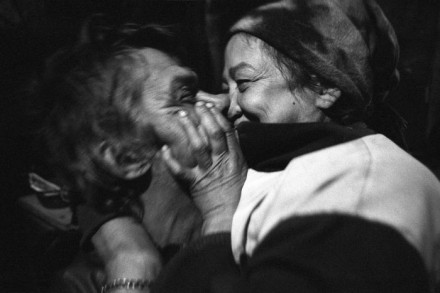
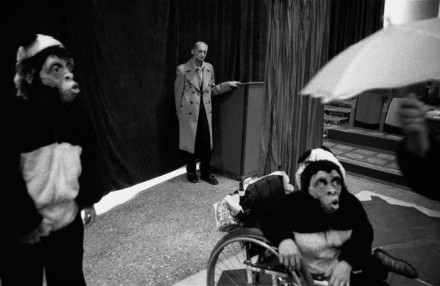
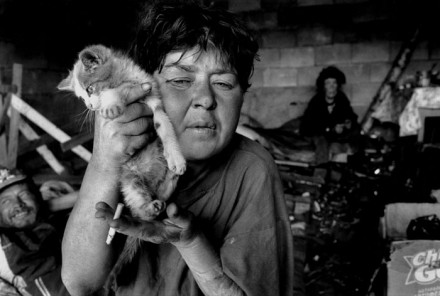
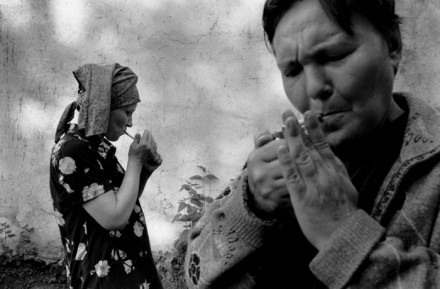
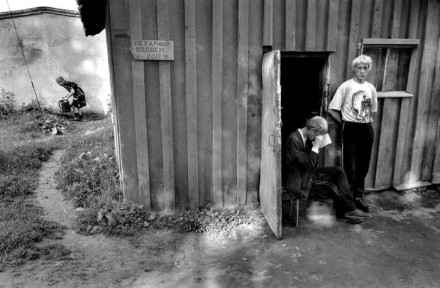
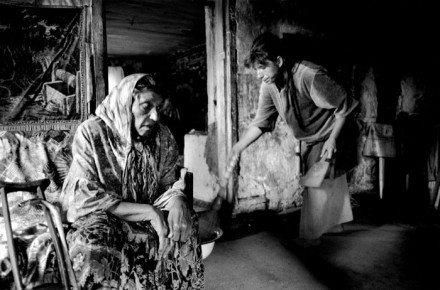
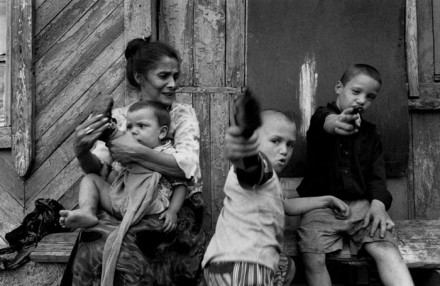
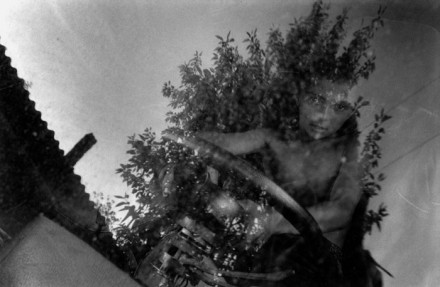
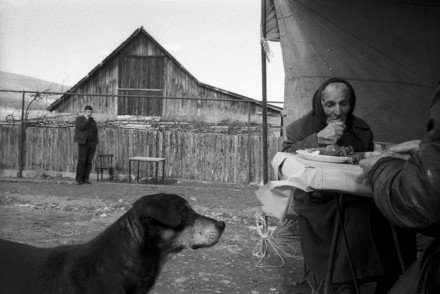
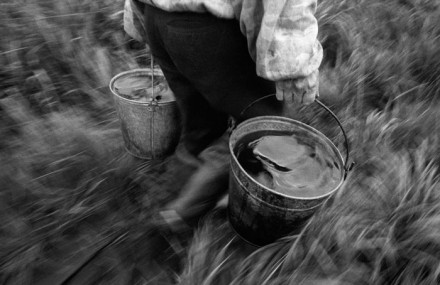
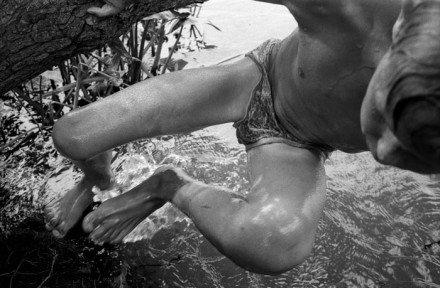
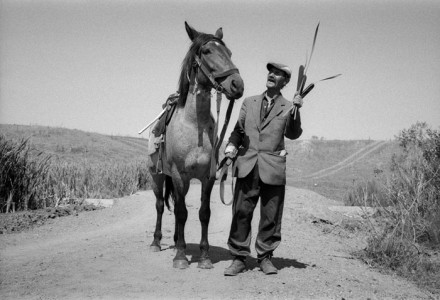
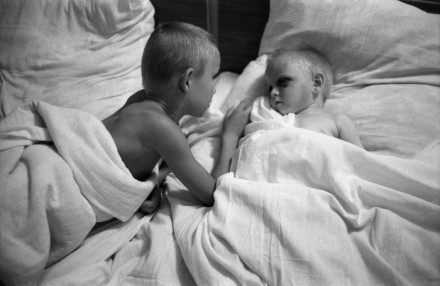
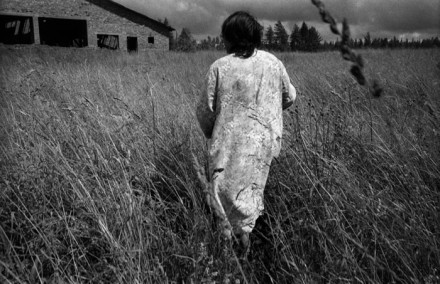



















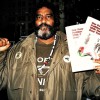


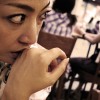



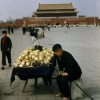







mi piacciono molto, mi piace lo sguardo di seta di chi ama.
Fantastic photographs, full of charm and compassion. An outstanding portrait of difficult lives lived in isolation.
Sempre affscinanti le immagini di Sasha. In bocca al lupo!
Grazie Sacha per avermi fatto respirare quest’aria di mondi da me lontanissimi…ho creduto di toccare quelle lenzuola di quel bianco così ruvido…
Spero di rincontrarti presto!
Dear Sacha,
after seeing your beautiful photos at Noorderlicht (Leeuwarden, The Netherlands) I wrote you already that I hoped that you can make a book of them. After reading your text – in which I see a lot of affinity of soul (if that’s the word) – I ‘m still more strong convinced. But I know: it’s very difficult to find a bookpublisher who takes the risk. Have you ever heard of Anders Petersen? A very interesting Swedish photographer. Maybe he can help you. Please travel on and continue photographing and living like you do. With warm regards, Joep Eijkens.
You can also subscribe to this post comments RSS feed.